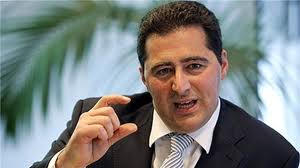By Andrew Warshaw
November 21 – The hosting of the 2018 and 2022 World Cups by Russia and Qatar, which appeared to be a closed case a week ago, has been plunged back into the spotlight after the two FIFA ethics chiefs at the centre of the anti-corruption investigation agreed the evidence should be further examined in-house – and then opened up to FIFA’s entire executive committee.
After days of claim and counter-claim and no end of twists and turns, FIFA ethics judge Hans-Joachim Eckert and his investigatory opposite number Michael Garcia, who met Thursday to discuss their differences, agreed to turn the entire file over to a third official, Domenico Scala, chairman of FIFA’s Audit and Compliance Committee.
Scala now becomes the man at the heart of the case, charged with deciding which selected parts of the report should be released to FIFA’s inner sanctum. FIFA cynics are already claiming this is another delaying tactic in the release of potentially explosive information relating to the award of the World Cup hosting contracts.
Last week, within hours of Eckert’s summary of Garcia’s report being published and deciding there was not strong enough evidence to re-run the bidding process for the 2018 and 2022 World Cups, the American lawyer announced he was appealing against the summary findings (though did not give detail on which findings), citing “numerous materially incomplete and erroneous representations” of his work by Eckert.
That led to Thursday’s talks in Zurich, but it would appear that Garcia’s appeal is still active, suggesting there may well be lingering rancour between them.
As a compromise they agreed that “it is of major importance that the FIFA Executive Committee has the information necessary to evaluate which steps are required based on the work done by the FIFA Ethics Committee,” they said in a joint statement.
“The chairmen also offered to answer any questions the chairman of the Audit and Compliance Committee and the Executive Committee might have.”
The 25-strong exco, which now comprises only 12 of those who voted in the scandal-plagued ballot back in December 2010, next meets on December 18-19 in Marrakesh, Morocco. Although the newest and most reform-minded members want to see the report in full, it is unlikely Scala will have completed his work in time for next month’s meeting.
Nevertheless, Eckert and Garcia say they have now officially opened cases against individuals linked to the bid process which was dogged by allegations of bribery and vote-trading. This was made clear as a definite possibility in Eckert’s summary but has now quickly become a reality.
“The investigatory chamber has already opened a number of formal cases against individuals,” the joint statement said, without identifying names or detailed allegations. The suspects could include just about anyone connected with the nine bid candidates.
Earlier this week FIFA had already stepped up further scrutiny of the case by filing a criminal complaint with Switzerland’s attorney general after revealing that “international transfers of assets with connections to Switzerland” may have taken place during the bid process.
Garcia’s investigation report may still be under lock and key at FIFA because of strict confidentiality rules when it comes to protecting witnesses. But the Swiss authorities are not bound by FIFA laws (though would still likely be bound by confidentiality provisions) and their involvement takes the issue of potentially corrupt individuals – and the punishments they could receive – to a whole new level.
As for Scala, until now he has been mainly responsible for how FIFA conducts its financial dealings but has previously gone on the record as saying the World Cup corruption investigation should have the power to remove a host if compelling evidence was found.
His role will now be crucial in determining how much of the information at his disposal he decides to put to the exco which will then, in all likelihood, find itself split in terms of what sanctions to recommend.
The Russian and Qatari bid committees have always denied wrongdoing and have pledged to continue their World Cup hosting plans though there is still no decision whether to hold 2022 in winter or summer, adding even more disarray to a saga that now seems some way from being concluded.
Meanwhile, Garcia’s relationship with FIFA is clearly becoming increasingly tetchy. An initial bland statement on FIFA’s website about Thursday’s meeting simply said that it took place, with no information.
Within minutes, a statement from Garcia’s office in New York, received by this website, invited reporters to go to FIFA to get news of the agreement between him and Eckert. That statement then followed about 30 minutes later.
Contact the writer of this story at moc.l1744971730labto1744971730ofdlr1744971730owedi1744971730sni@w1744971730ahsra1744971730w.wer1744971730dna1744971730

